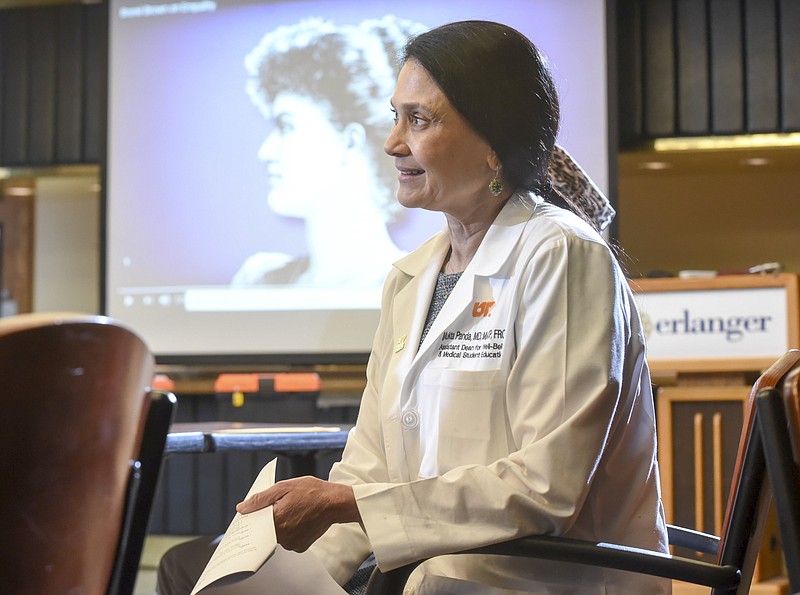With health care workers on the front lines of the fight against the ongoing COVID-19 pandemic, some health officials say the industry must address the underlying problems of stress and burnout to head off a growing mental health crisis in the field, especially as the effects of the coronavirus will be felt for months if not years to come.
Dr. Mukta Panda, professor and assistant dean at the University of Tennessee College of Medicine at Chattanooga, said health workers are seeing up close the effects of COVID-19 - the sickness and death and how it affects families - all while going through their own struggles, many of which are shared by other Chattanooga residents, such as loved ones losing jobs or fears about becoming sick with the virus.
"We all cannot deny the fact that stress has occurred," Panda said. "We cannot deny the fact that there will be a consequence of the stress. We cannot deny the fact that everybody is going to face it."
By this weekend, the coronavirus has infected more than 1.35 million people nationwide and killed at least 80,000. Across the country, hospital systems are spread thin trying to treat infected patients.
Society can now enter a period of post-traumatic growth, Panda said. The initial shock of the coronavirus is over, and the health care community must work to support its workers to continue to treat the virus in what is expected to be a long pandemic.
There was already a problem of worker burnout in health care before the coronavirus, Panda said. Almost three-quarters of local physicians felt exhausted, disengaged or both, according to a survey by the Chattanooga-Hamilton County Medical Society.
(READ MORE: Hamilton County's COVID-19 'death rate' is skewed by limited testing)
Research shows offering workers exercise classes or midday breaks is not effective at stopping burnout, Panda said. Instead, health systems should build community among their workers to nurture the call many in the health profession feel to be caregivers. Leaders should create supportive communities where people can talk about the challenges they feel without worrying that admitting they are struggling will lead to them losing credibility or being ignored, Panda said.
Just as friends and family are doing regular check-ins with loved ones, hospital leaders should be doing the same for their teams, she said. People are going to feel overwhelmed, sad or tired, and that is normal, she said.
Workers with LifeBridge, a medical society initiative to provide resources to health care workers, are continuing to reach out to people to connect them to resources. The group typically held in-person events to start conversations about mental health but now people are doing more one-on-one check-ins, said Rae Bond, executive director of the medical society. LifeBridge offers members six free sessions with a therapist each year.
"We really want to try to say if stress is overwhelming you or if you're really having a hard time balancing all the competing needs that you face, take a little time out and talk to somebody before it reaches a crisis," Bond said.
Health leaders should use the current moment to set a precedent, Panda said.
"We really cannot become complacent. So really now what we really have to focus on is how are we going to prepare for the 'new normal' while processing the experiences that the health care professionals and the people on the front line are facing."
When entering the field, medical professionals recite the Hippocratic Oath, which includes a stated duty to help their patients. Panda said she would like to see a duty to self and self-care included in the oath. Similar to airplane travel safety instructions, someone cannot help others before helping themselves, she said.
Contact Wyatt Massey at wmassey@timesfreepress.com or 423-757-6249. Follow him on Twitter @news4mass.
